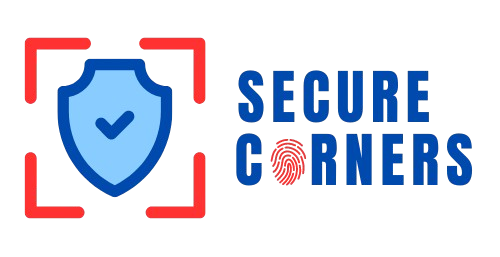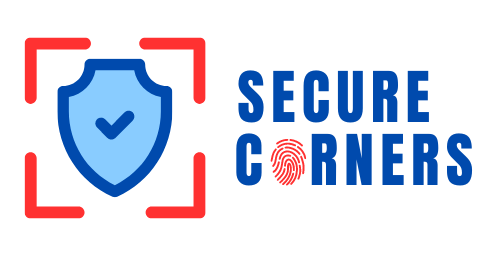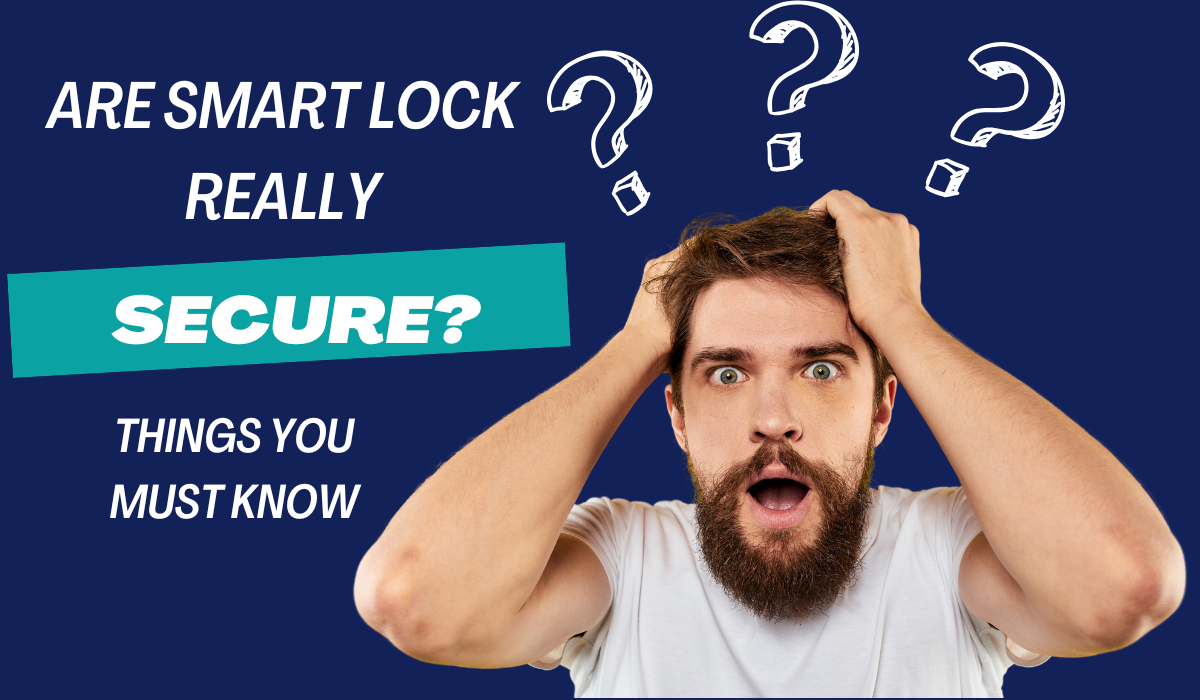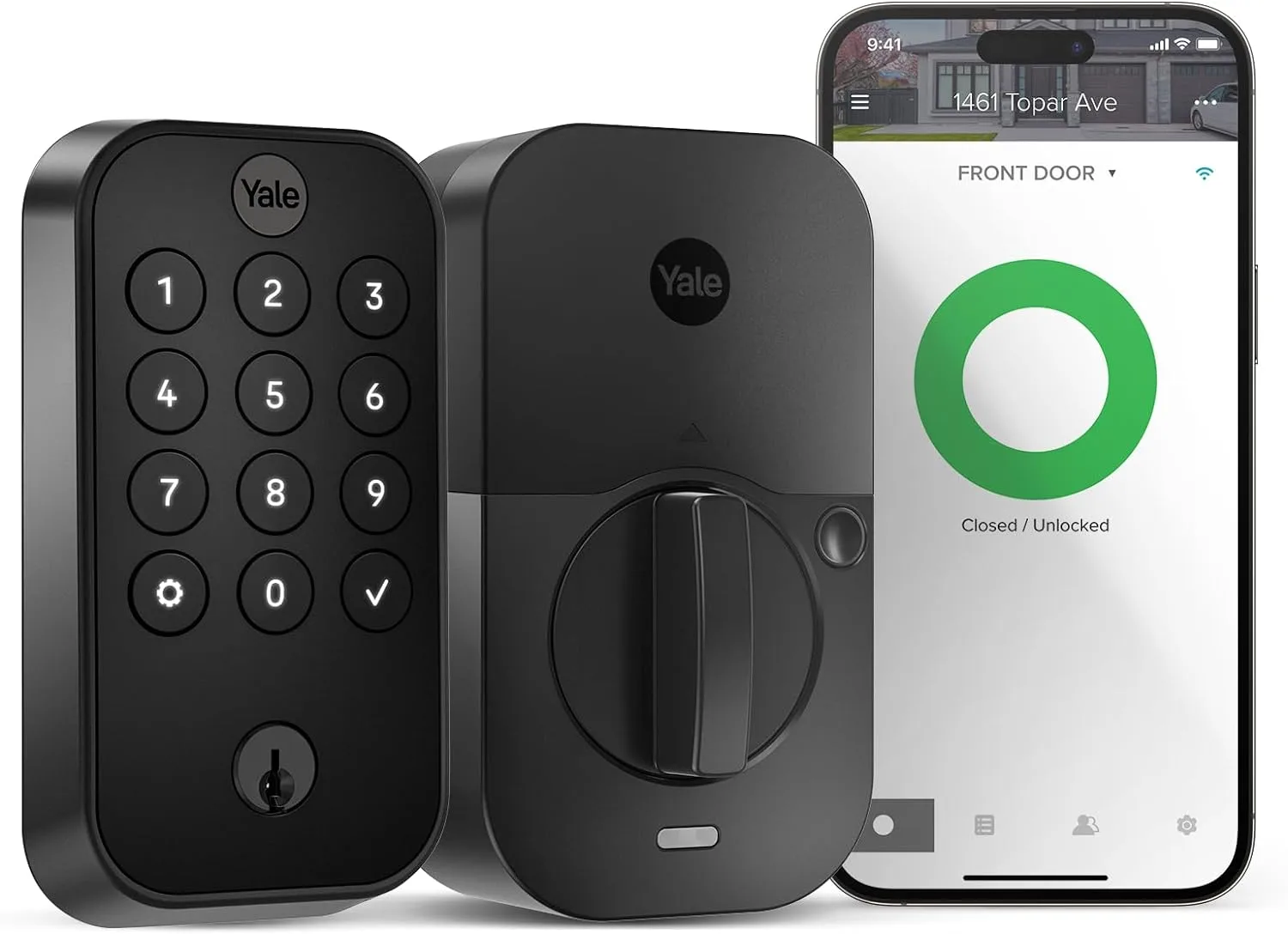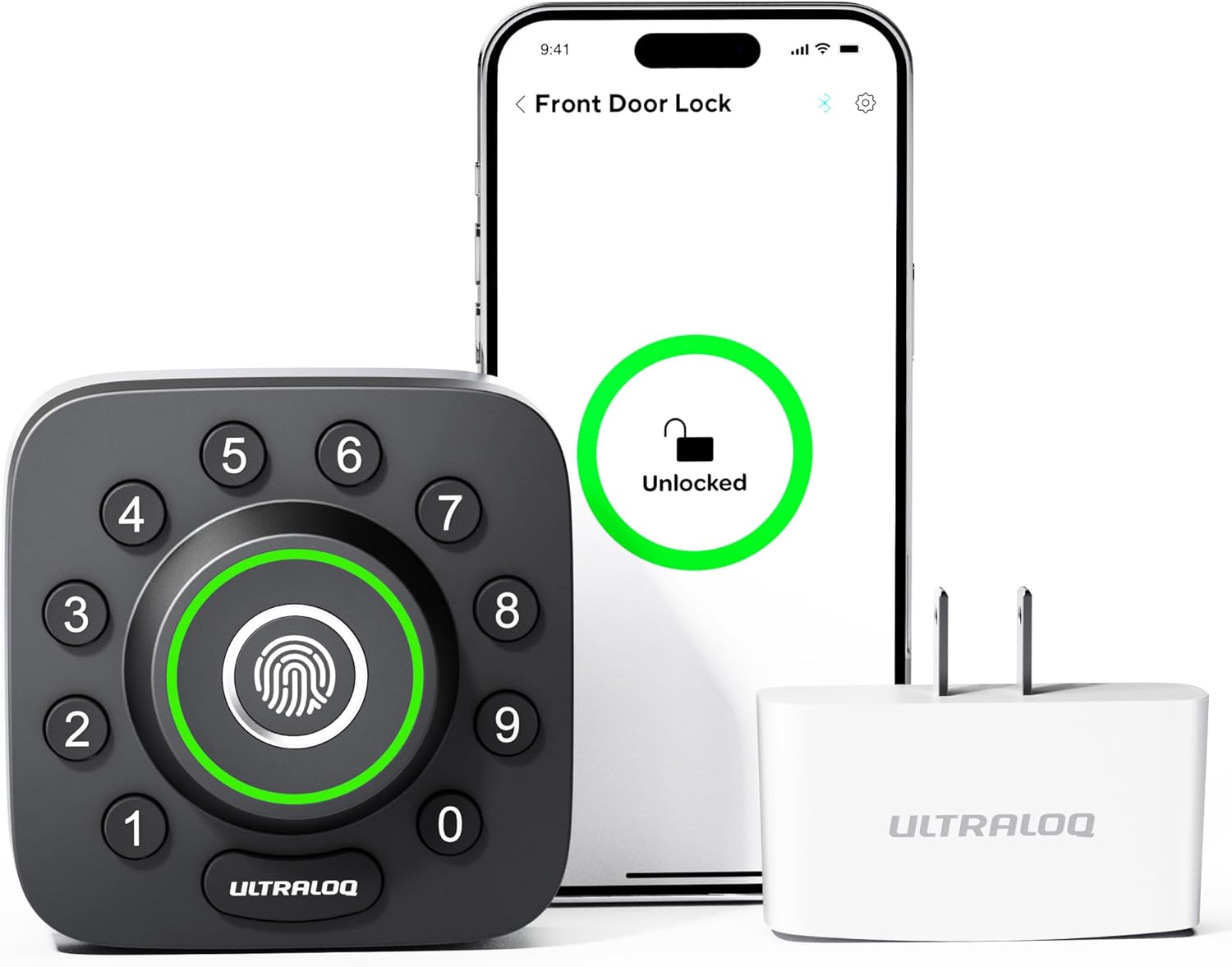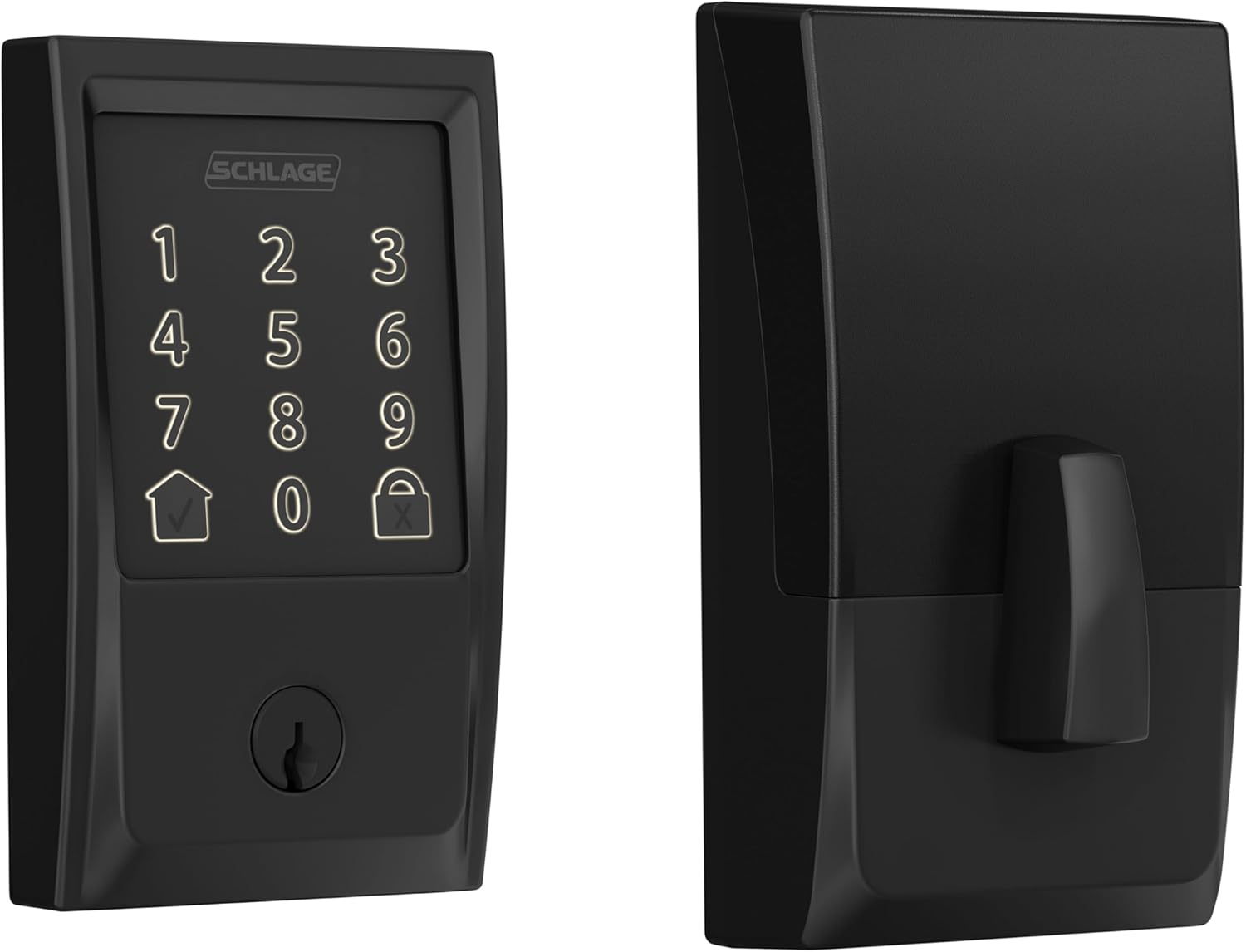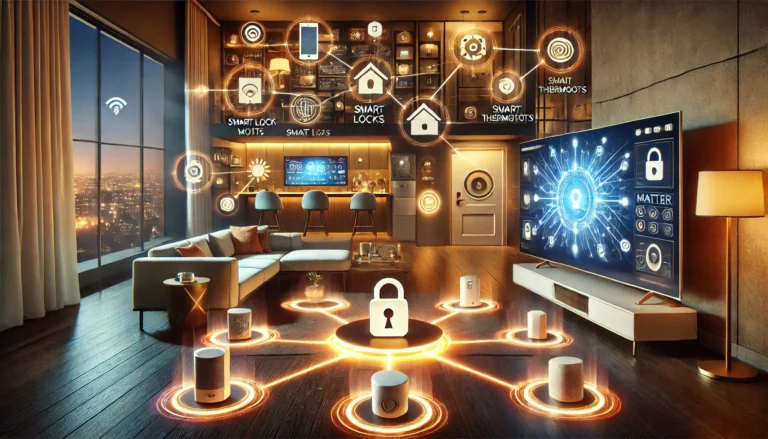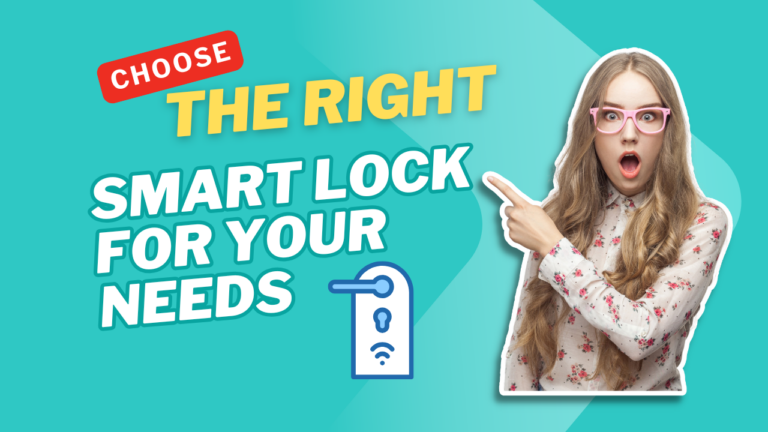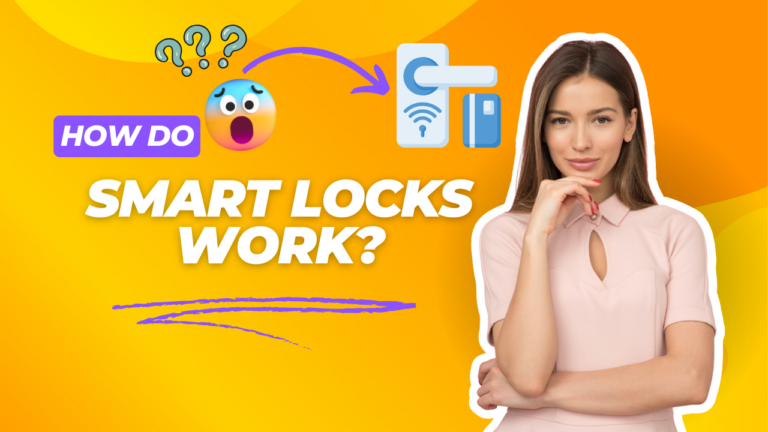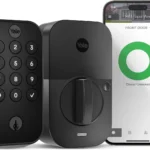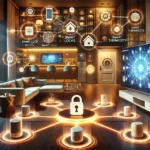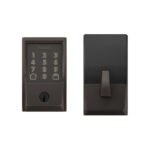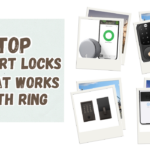Introduction
As our homes get smarter, more connected, and more efficient, smart locks have emerged as one of the standout innovations for modern living. With the ability to control access through your smartphone, set temporary keys for visitors, and even monitor entry remotely, smart locks offer a level of convenience and flexibility that traditional locks just can’t match. But this convenience raises a critical question for many homeowners: How secure are smart locks?
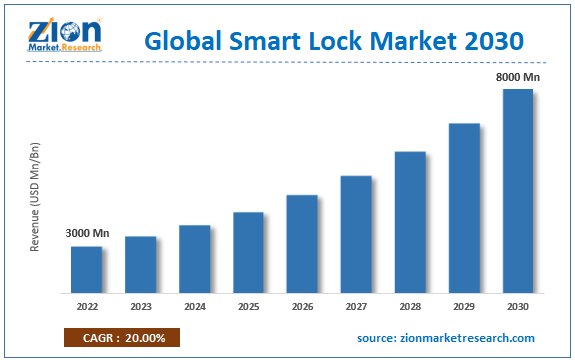
According to the research conducted by Zion Market Research smart locks is projected to grow USD 8.0 Billion by 2030. Another study conducted by SCIENTIFIC PAPERS OF SILESIAN UNIVERSITY OF TECHNOLOGY that discuss the the usage of smart locks in smart home. With growing interest in smart home security, it’s natural to wonder if smart locks are as secure as they seem. While they promise a host of high-tech features like encryption, remote access, and two-factor authentication, some worry these digital systems might be vulnerable to hacking or technical malfunctions. In this article, we’ll break down the pros and cons of smart lock security, discuss essential features to look for, and explore how these devices measure up against traditional locks to help answer the pressing question: how secure are smart locks?
What Makes Smart Locks Secure?
To answer the question, how secure are smart locks, it’s important to understand what sets them apart from traditional locks. At their core, smart locks operate on the same principle of securing entry points, but they do so using digital technology instead of a standard key-and-tumbler mechanism. While a traditional lock relies on a physical key for access, a smart lock enables entry through digital controls such as a mobile app, keypad, or even voice commands. This shift from physical to digital security adds layers of convenience and customization but also brings new security considerations.
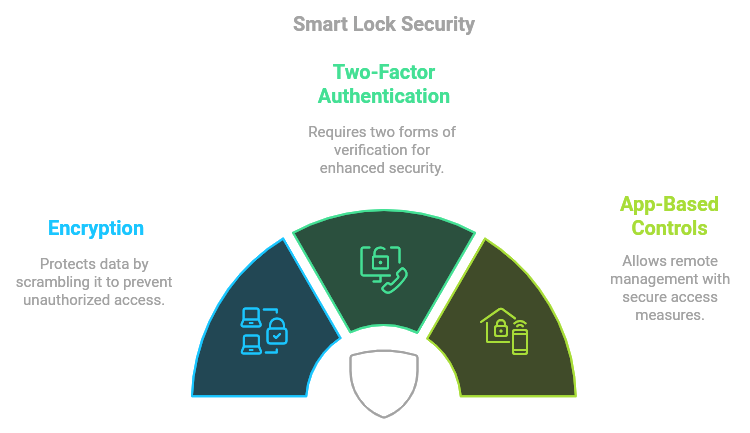
Encryption: One of the foundational elements of smart lock security is encryption. Much like banking apps and online transactions, encrypted smart locks protect your data by scrambling it, making it unreadable to potential hackers. This encryption process ensures that any data exchanged between your smartphone and the lock remains private and secure, reducing the risk of unauthorized access.
Two-Factor Authentication (2FA): To further answer how secure are smart locks, we must consider two-factor authentication (2FA), a widely recommended security measure. With 2FA, users must verify their identity in two ways—usually by combining something they know (like a password) with something they have (like a smartphone). This added layer of security makes it significantly harder for anyone to gain access to the lock, even if they know the primary password.
App-Based Controls: The convenience of managing your lock from a mobile app adds both control and risk. With app-based controls, you can monitor entry logs, assign temporary keys, or even lock and unlock remotely. However, securing these controls with strong, unique passwords and keeping the app up to date with the latest software helps to mitigate the potential risks associated with remote access.
These features work together to create a security framework that goes beyond traditional locks, addressing the unique digital vulnerabilities of smart home technology. With these safeguards, how secure are smart locks becomes a question of how well users leverage the tools provided to maintain a secure, tech-driven home.
Key Security Features to Look For in Smart Locks
When exploring how secure are smart locks, it’s essential to look at the specific features that protect these devices from potential threats. Key elements like encryption, two-factor authentication (2FA), and remote access controls contribute significantly to the overall security of smart locks, making them viable options for safeguarding your home. Let’s dive into these critical features to understand their impact.
Encryption and Data Protection
Encryption is at the heart of digital security, playing a vital role in answering how secure are smart locks. In essence, encryption scrambles the data exchanged between your smartphone and the lock, transforming it into a format that is nearly impossible for unauthorized users to decipher. This data protection ensures that any commands sent to your lock remain private and protected from cyber threats. Without encryption, the lock’s communications could be intercepted by hackers, creating a serious vulnerability. By choosing a smart lock with advanced encryption standards, users can minimize the risk of breaches and enjoy enhanced data privacy.
Two-Factor Authentication (2FA)
For anyone wondering how secure are smart locks, two-factor authentication (2FA) is a reassuring feature. 2FA requires users to verify their identity in two separate ways—often combining something they know (like a password or PIN) with something they have (such as their smartphone or a verification code). This dual-layer security measure adds a significant obstacle for potential intruders, making it much harder for unauthorized individuals to gain access, even if they somehow manage to obtain your password. With 2FA in place, you have the added confidence that your smart lock is protected by a barrier that far surpasses traditional lock-and-key security.
Remote Locking and Unlocking
One of the most appealing features of smart locks is the ability to lock or unlock your door remotely. This convenience is especially useful for allowing access to guests, deliveries, or maintenance personnel when you’re not home. However, the ability to control your lock from anywhere also introduces certain risks, which are vital to consider in assessing how secure are smart locks. If an unauthorized user gains access to your smartphone or login credentials, they could theoretically control your lock. To counter this risk, it’s important to secure your smart lock app with a strong password and activate any available security measures, such as biometric logins or app-specific PIN codes.
Each of these features plays a critical role in determining how secure are smart locks and helps to build a robust defense against potential vulnerabilities. By prioritizing smart locks with encryption, 2FA, and secure remote access, homeowners can enjoy both the convenience and enhanced security that these devices offer.
Smart Locks To Consider
If you are looking for a smart lock that works with Ring, we have a separate article here. It has a list of top smart locks that really works with Ring. It also discuss the things you must know to harness the Ring awesome features.
Are Smart Locks Hack-Proof?
When considering how secure are smart locks, it’s crucial to address the possibility of hacking. While smart locks offer a range of advanced security features, no device is entirely hack-proof. Smart locks rely on wireless technology, which can expose them to specific vulnerabilities, particularly if the device lacks robust protection measures. Here, we’ll explore the security differences between Bluetooth and Wi-Fi-enabled smart locks and identify common vulnerabilities that users should be aware of.
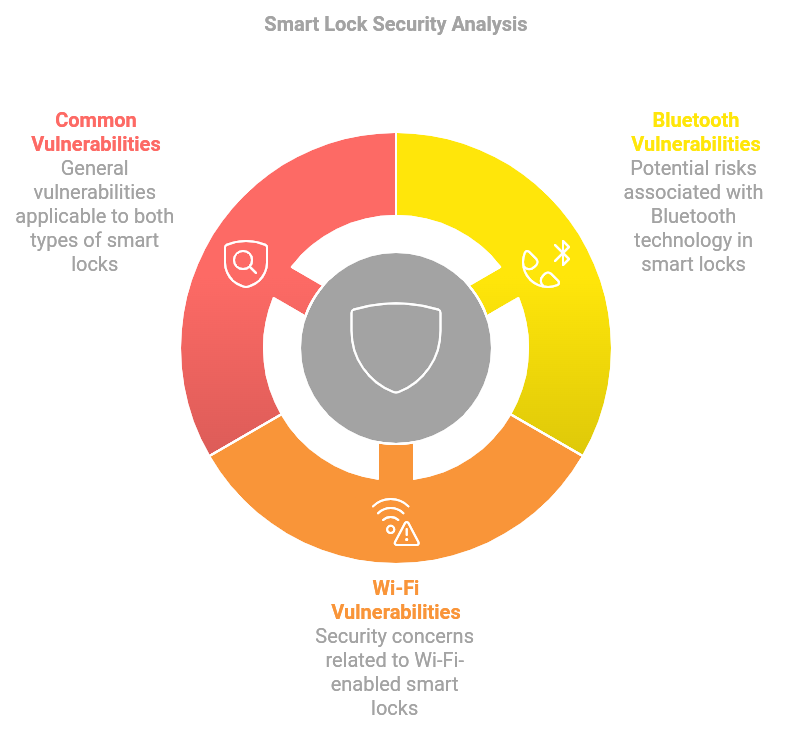
Bluetooth vs. Wi-Fi Connections
One key factor in how secure are smart locks is the type of wireless connection they use. Bluetooth and Wi-Fi are the two primary options, and each has distinct advantages and potential risks. Bluetooth-enabled smart locks typically offer a lower range of connectivity, which limits their exposure to external hacking attempts. Because Bluetooth connections are generally only accessible within a close distance, it reduces the likelihood of remote hacking. Additionally, Bluetooth consumes less power, making it more energy-efficient for battery-operated locks.
On the other hand, Wi-Fi-enabled smart locks provide more convenience, allowing users to control and monitor their locks from virtually anywhere. However, this broader range of connectivity can open the door to higher risks. Wi-Fi connections are more susceptible to remote hacking since they operate over the internet. A strong firewall and updated firmware can mitigate some risks, but Wi-Fi-enabled smart locks remain a more tempting target for potential hackers due to their increased accessibility.
Vulnerabilities to Watch For
Understanding the vulnerabilities inherent in smart locks is essential when evaluating how secure are smart locks. While manufacturers implement advanced security measures, certain weaknesses may still be present, particularly in lower-quality or outdated models.
- Hacking Attempts: Cybersecurity threats are a genuine concern with any smart device. Hackers might attempt to intercept data between your smart lock and smartphone or compromise login credentials. Choosing a smart lock with strong encryption and regularly updating the device’s firmware are essential steps in minimizing these risks.
- Signal Interference: Smart locks that rely on wireless signals can be vulnerable to interference. Signal jamming is a tactic that some attackers might employ, blocking the wireless connection between your lock and its controlling app. While this doesn’t grant direct access, it can disrupt functionality, potentially causing the lock to become unresponsive. High-quality smart locks often include security protocols to detect such interference, reducing the impact of signal disruptions.
- Weak Passwords and Outdated Software: A common yet preventable vulnerability is weak password management. Using a simple or easily guessed password can make it easier for hackers to access your smart lock. Similarly, failing to keep your lock’s software up to date can leave it vulnerable to newly discovered exploits. Maintaining strong, unique passwords and enabling automatic updates can help guard against these risks.
When asking how secure are smart locks, it’s clear that both the type of connection and the user’s security habits play a critical role. While no smart lock is entirely immune to hacking, understanding these risks and choosing a lock with robust security features can significantly reduce your exposure to potential threats.
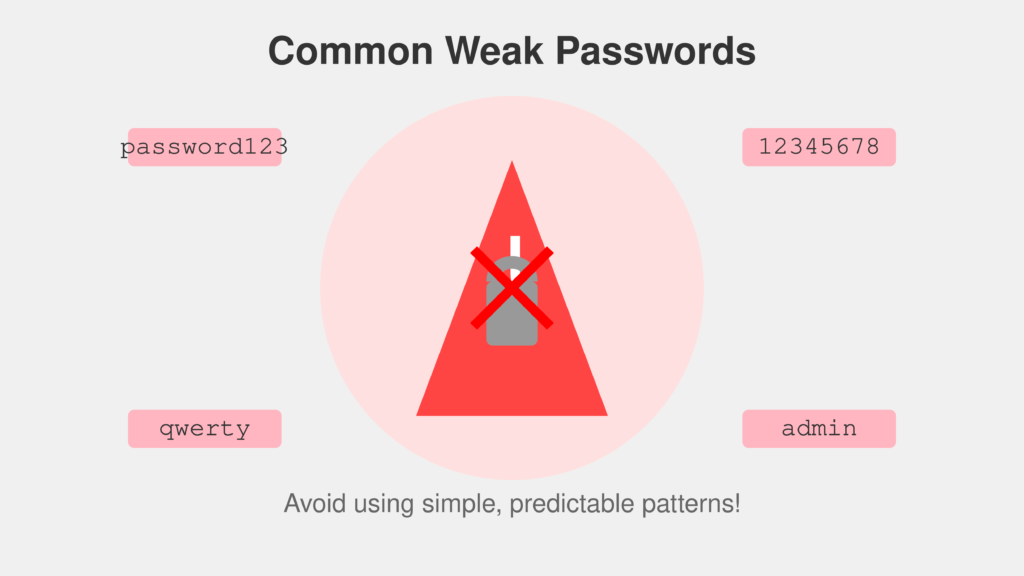
How Smart Locks Compare to Traditional Locks
When evaluating how secure are smart locks compared to traditional locks, it’s important to consider the unique advantages that smart locks bring to the table, as well as the lingering concerns some homeowners have about digital security. For security-conscious individuals looking for a blend of convenience and control, smart locks offer several benefits that traditional locks can’t match. However, there are valid reasons why some still prefer the classic key-and-lock system.
Benefits of Smart Locks for Security-Conscious Homeowners
- Remote Access and Monitoring: Smart locks allow users to lock and unlock their doors remotely, giving homeowners peace of mind when they’re away from home. Many smart locks also offer real-time monitoring, allowing users to check entry logs to see who has accessed their home and when.
- Temporary and Customizable Access: One of the strongest points for how secure are smart locks is their ability to grant temporary access to guests, service providers, or family members without needing to hand over a physical key. You can set temporary codes or digital keys that expire after a certain time, enhancing security by ensuring that only trusted individuals have access.
- Advanced Security Features: Unlike traditional locks, smart locks can offer enhanced security through features like two-factor authentication (2FA), encryption, and alerts for any unusual activity. These digital safeguards add layers of protection beyond the physical security of traditional locks.
- No Lost Keys Issue: With smart locks, the risk of being locked out due to a lost key is eliminated. Whether through a smartphone app, keypad, or biometric scanner, users have various secure ways to access their homes without a physical key.
Addressing Concerns of Traditionalists
For some, the question how secure are smart locks brings to mind certain reservations, particularly about reliability and the risk of digital vulnerabilities. Traditional locks, which rely on the straightforward mechanism of a physical key, are seen as a tried-and-true method of home security. Concerns commonly include:
- Digital Reliability: Traditionalists may worry about the potential for technology malfunctions, like dead batteries or Wi-Fi outages, which could temporarily render a smart lock inoperable. While smart locks usually offer backup options (such as a physical key slot or external battery access), reliance on technology is still a point of contention.
- Hacking and Cybersecurity Risks: The fear of hacking looms large for some homeowners. While smart locks incorporate encryption and other security measures, the potential for cyber vulnerabilities remains a concern, especially if the device or app isn’t kept up-to-date.
- Simplicity and Familiarity: For those who value simplicity, a traditional lock offers the ease and familiarity of using a standard key. There’s no need to worry about setting up an app, remembering passwords, or managing software updates. For many, the simplicity of a key-based lock offers peace of mind that digital solutions can’t replace.
In weighing how secure are smart locks versus traditional locks, it becomes clear that smart locks bring advanced features and convenience that can enhance home security significantly. However, they may not completely replace the peace of mind that some find in the time-tested reliability of traditional locks. For those open to a hybrid approach, many smart locks offer both digital and key-based options, combining the best of both worlds for a flexible and secure solution.
Tips for Maximizing Smart Lock Security
When assessing how secure are smart locks, it’s essential to remember that a large part of maintaining security comes down to user practices. While smart locks offer advanced technological protections, there are a few best practices that homeowners can follow to ensure these devices remain as secure as possible. By keeping software up-to-date, setting strong passwords, and utilizing backup keys, you can significantly enhance your smart lock’s security.
Regular Software Updates
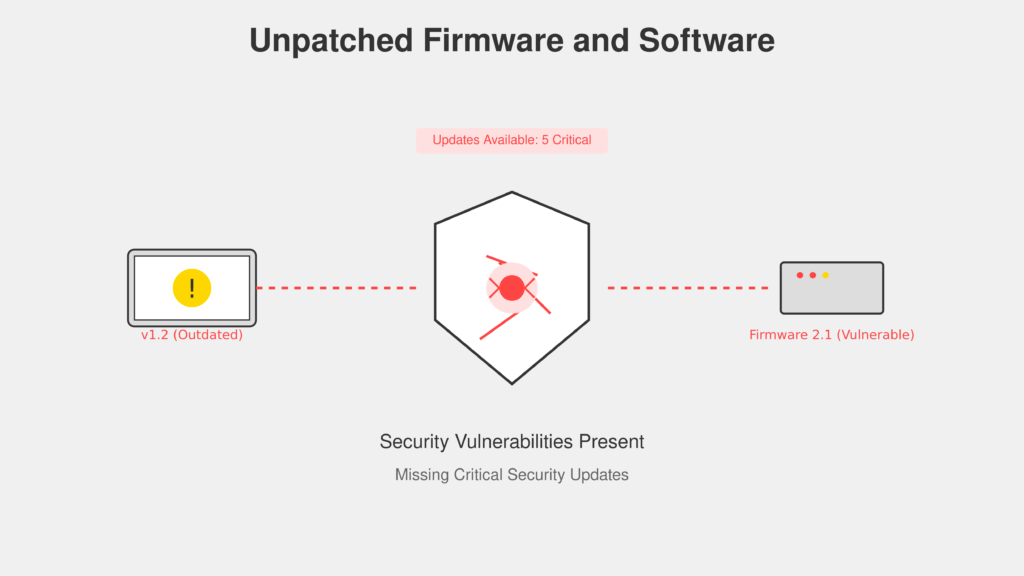
One of the most straightforward ways to enhance how secure are smart locks is by regularly updating the device’s firmware. Manufacturers frequently release updates that address newly discovered vulnerabilities or add enhanced security features. By neglecting these updates, you may inadvertently leave your lock exposed to potential threats. Enabling automatic updates (if available) or periodically checking the app for updates can help ensure your smart lock is always protected with the latest security enhancements.
Set Strong, Unique Passwords
Password security is a critical factor in how secure are smart locks. To prevent unauthorized access, use a password that is both strong and unique. Avoid common or easily guessed passwords, such as “123456” or “password.” Instead, aim for a complex combination of letters, numbers, and special characters. Additionally, avoid reusing passwords across multiple devices or accounts, as this increases the risk of a security breach. By taking the time to set a robust password, you create an additional layer of defense that protects your smart lock from potential hacking attempts.
Use of Backup Keys and Alternative Access Options
Even with a high level of security, it’s wise to have a backup plan. Many smart locks include an option for a physical key as a fallback. This feature not only provides peace of mind but also serves as a reliable entry method in case of a digital failure, such as a dead battery or connectivity issue. If your smart lock has a keyhole, ensure that any backup keys are stored securely, ideally in a location where they’re accessible in an emergency but not easily found by intruders. Additionally, some smart locks offer alternative access methods, like external battery ports or NFC (near-field communication) tags, which can be useful in unforeseen situations.
By following these simple yet effective practices, homeowners can boost how secure are smart locks and minimize the risk of unauthorized access. Embracing regular updates, creating strong passwords, and securing backup keys provides a comprehensive approach to keeping your smart lock—and your home—as secure as possible.
Conclusion: Are Smart Locks Right for You?
When it comes to how secure are smart locks, the answer largely depends on both the device’s features and the user’s habits. Smart locks provide a modern blend of convenience, flexibility, and advanced security features that traditional locks simply cannot offer. With encryption, two-factor authentication, and remote access capabilities, smart locks are designed to keep up with the demands of today’s digital lifestyle. However, they also introduce unique considerations, from the potential for hacking to the importance of regular software updates and strong passwords.
If you’re someone who values easy access control, remote monitoring, and customized entry options, a smart lock can be a valuable addition to your home. That said, it’s essential to evaluate your own security needs. For those who prioritize simplicity or have concerns about digital reliability, a hybrid lock that includes both smart and traditional access options may offer the best of both worlds.
Ultimately, the question of how secure are smart locks can only be answered by considering your specific needs, lifestyle, and level of comfort with technology. By making an informed choice, you can find the smart lock that enhances your home’s security and fits seamlessly into your daily routine.
FAQ
Q1: Are smart locks safer than traditional locks?
Smart locks offer unique security features that traditional locks can’t, such as encryption, remote monitoring, and the ability to create temporary access codes. However, how secure are smart locks ultimately depends on the specific model and the user’s security practices. While smart locks provide added layers of security, traditional locks are not susceptible to hacking and may be preferred by those who prioritize simplicity.
Q2: Can smart locks be hacked?
Yes, smart locks can theoretically be hacked, especially if security measures like encryption, two-factor authentication, and strong passwords are not implemented. When evaluating how secure are smart locks, it’s crucial to choose models with robust cybersecurity features and regularly update the firmware to protect against potential vulnerabilities.
Q3: Do smart locks work during power outages?
Most smart locks are battery-powered, so they continue to function even if there’s a power outage. However, how secure are smart locks during such events may depend on the lock’s design. Many smart locks also include a backup physical key option or external battery terminals to ensure you’re never locked out, even when power or battery life is low.
